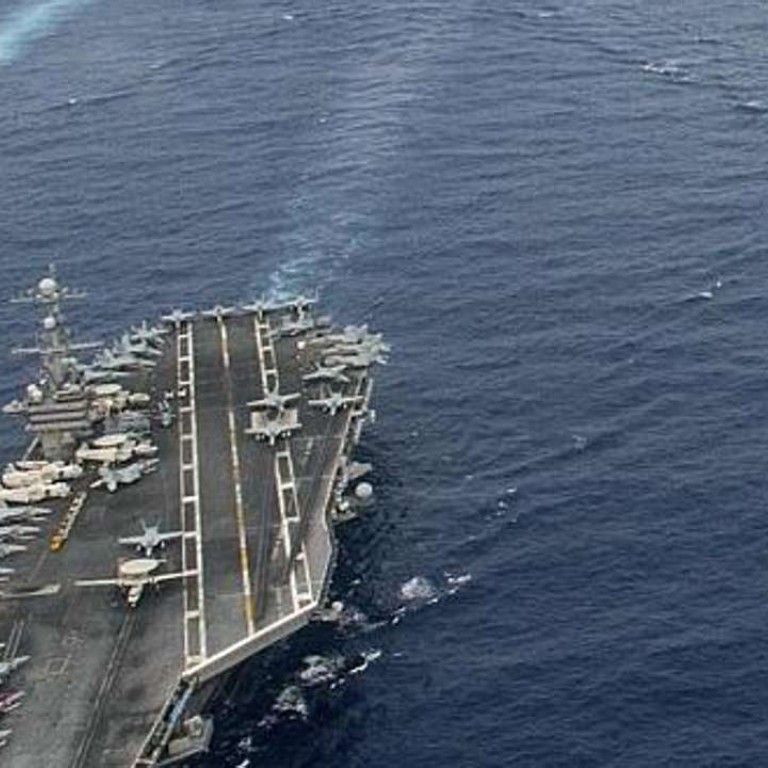
US pivot to Asia ‘likely to continue on smaller scale’ under Trump
Observers say incoming administration will remain committed to allies, but will put less emphasis on the region
The new administration of Donald Trump will not repudiate the US “pivot to Asia” strategy, and it may even strengthen the country’s military capacity and presence around the world, according to the president-elect’s top military advisers.
The implications of Trump’s foreign and defence policy remain to be seen, but some observers have said that a Trump administration might provide strategic opportunities for China to extend its presence in Asia.
Watch: Obama and Trump’s first White House meeting
“The US sees itself as the holder of the balance of power in Asia and is likely to remain quite determined to protect its allies against Chinese overreach,” Woolsey, who served as CIA director under president Bill Clinton, writes.
“China should realise that our reflexes in Asia are not driven by territorial ambitions.”
Two other defence advisers to the Trump campaign, Senator Jeff Sessions who sits on the Senate Armed Services Committee, and Congressman Randy Forbes, chairman of a subcommittee on sea power, told Defence News that Trump’s plan would still involve some kind of “Pacific pivot”, but that “the US can’t just put all of its eggs in one basket”.
Sessions, who has been widely tipped as secretary of defence in the new administration, revealed that Trump wanted to upgrade the US military by adding 60,000 troops and building more advanced warships, including cruisers, destroyers and submarines.
In order to make this security plan more feasible, Forbes said that Trump and his defence advisers were going to have “an international defence strategy that is driven by the Pentagon and not by the political National Security Council”.
Forbes said this meant the incoming president’s defence policy could be more “hawkish” than that of his predecessor, Barack Obama.
In his campaign rhetoric, Trump insisted that US allies in the Asia-Pacific region must pay their “fair share” of their national security expenses.

Military observers outside the United States said that they believed Trump would not completely reverse the current US policy towards Asia, because his decisions would ultimately have to be guided by the country’s national interests.
“President Trump probably will not repudiate the pivot, but he is not likely to embrace, much less highlight, that policy either,” Ted Galen Carpenter, a senior fellow for defence and foreign policy studies at the Cato Institute, said.
“His approach won’t be an isolationist policy, but it will be a more restrained and nationalist policy.”
Dr Rajeev Ranjan Chaturvedy, a research associate at the Institute of South Asian Studies at the National University of Singapore, said that despite Trump’s erratic election rhetoric, the incoming president would likely appoint a seasoned and experienced individual to his team to take care of defence issues.
“Individuals play important roles in shaping policies, but certainly national interest is of utmost importance.
“Democratic institutions will temper Trump’s rhetoric,” he said.
“You may expect a repackaging and rebranding of foreign policies in a nuanced way. In his victory speech, Mr Trump talked about common ground and partnership,” Chaturvedy added.
“I am optimistic about Trump’s engagement with Asia.”
However, Shi Yinhong, a specialist on Sino-US relations at Beijing’s Renmin University, said Trump’s election would bring “danger to the world we have been familiar with”.
“A weakened and very disorganised West will give China many strategic opportunities, but also make China’s economic difficulties graver at this economically difficult time. It will also make China even more assertive on the strategic front when prudence has already declined.”

